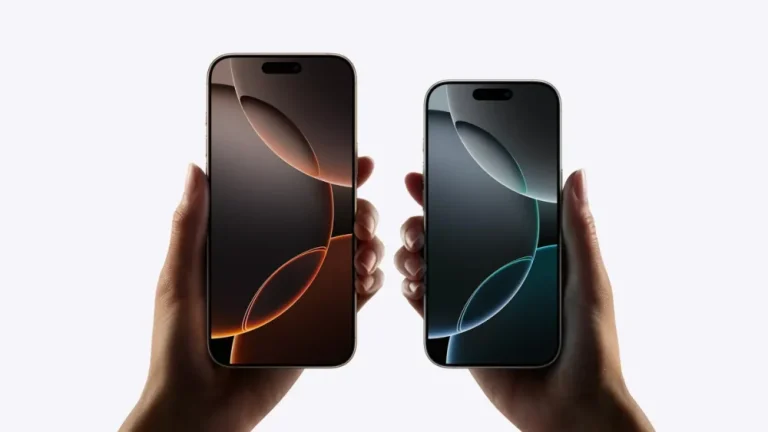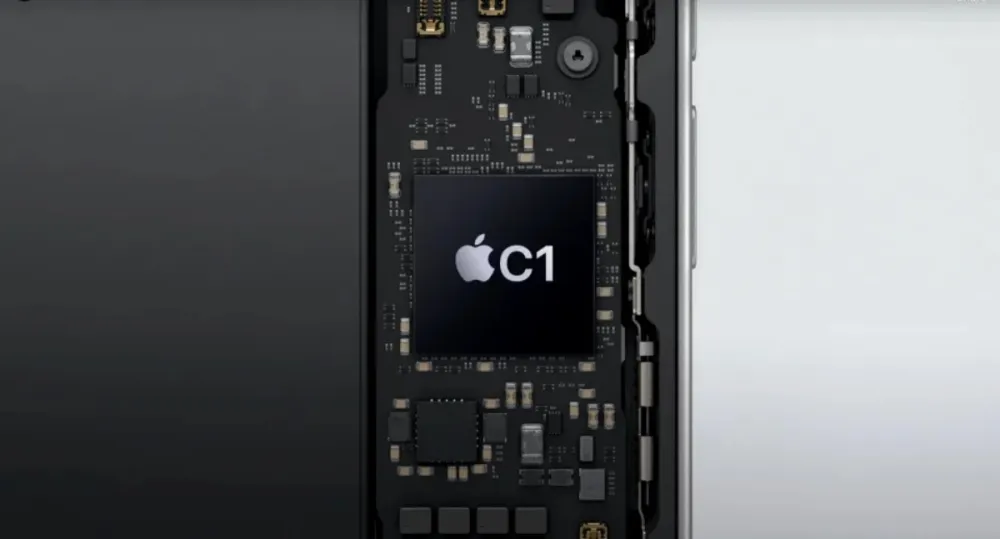
Apple’s custom-designed 5G modem, the Apple C1, which debuted in the iPhone 16e at the end of February, has undergone network performance testing conducted by Ookla Research, the company behind Speedtest. The tests, carried out across the networks of AT&T, Verizon, and T-Mobile in the United States, reveal that in certain conditions, the Apple C1 outperforms the Qualcomm modem found in the iPhone 16 in terms of network access efficiency.
However, due to structural differences in how these three major U.S. carriers deploy their 5G networks, performance varies. For instance, T-Mobile’s standalone 5G network architecture gives a notable advantage to the Qualcomm modem in the iPhone 16. Conversely, within AT&T and Verizon’s networks, the iPhone 16e equipped with Apple C1 demonstrates superior download speeds compared to the iPhone 16. Additionally, on both Verizon and AT&T, the iPhone 16e consistently achieves faster upload speeds than its Qualcomm-equipped counterpart.
In terms of peak download speeds, the iPhone 16 maintains an edge over the iPhone 16e, primarily due to the Apple C1’s lack of mmWave support. Instead, the iPhone 16e relies solely on sub-6GHz bands for connectivity. However, in network environments where only sub-6GHz bands are available, the iPhone 16e can, in some cases, achieve faster download speeds than the iPhone 16.
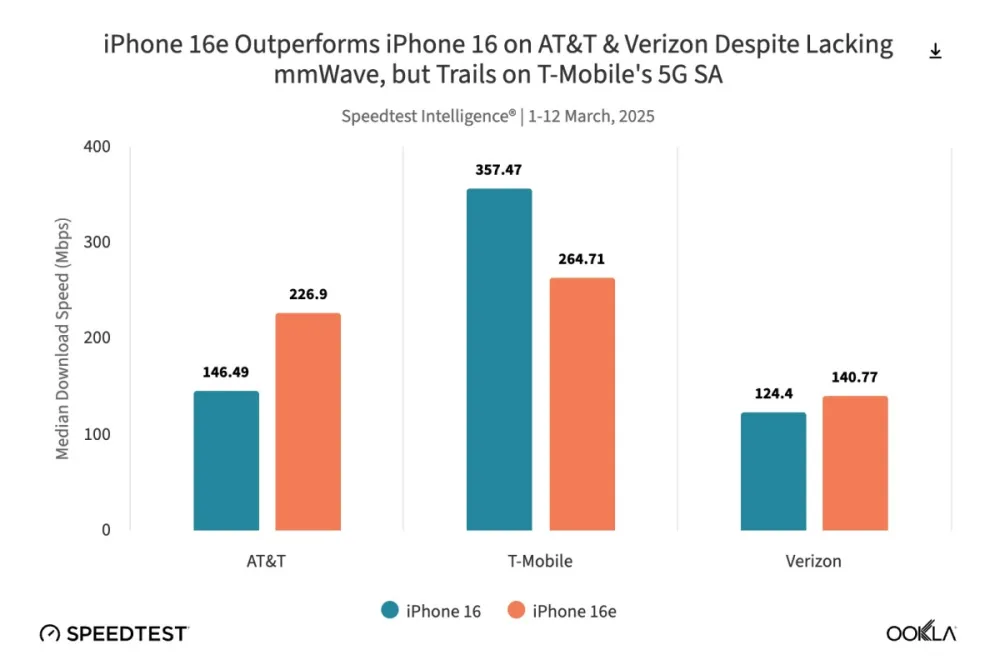
This is particularly evident when examining the bottom 10% of download speeds, where the iPhone 16e consistently outperforms the iPhone 16. For instance, on T-Mobile’s network, when the iPhone 16 records an average download speed of just 27.27 Mbps, the iPhone 16e achieves a significantly higher 57.34 Mbps.
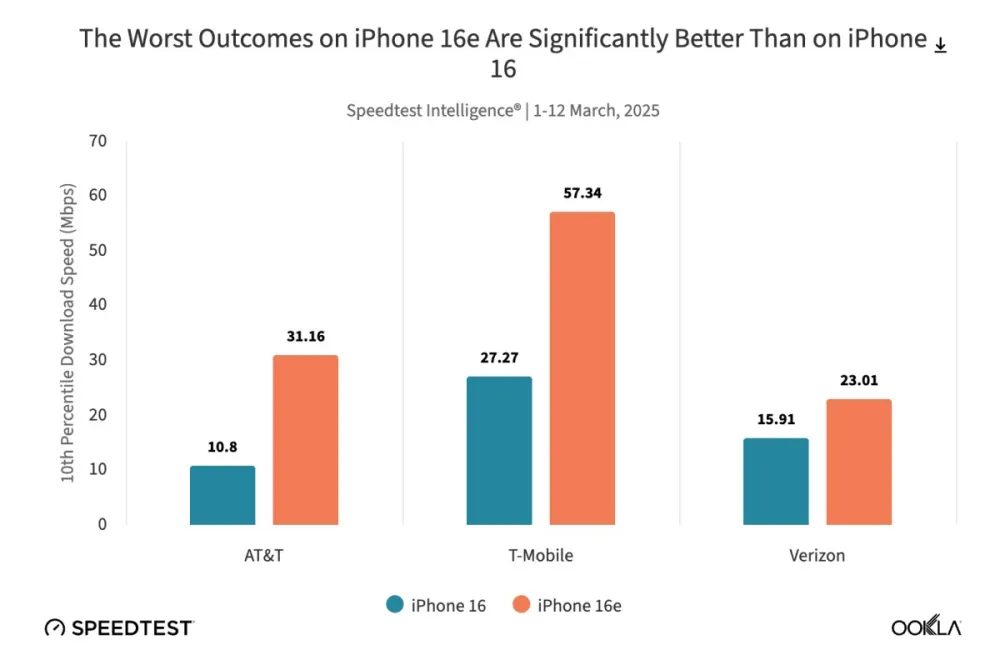
Conversely, in the top 90% of download speeds, the iPhone 16 almost always outperforms the iPhone 16e. In the fastest 10% of cases, the iPhone 16 reaches an impressive 889.83 Mbps, whereas the iPhone 16e lags behind at 627.01 Mbps.
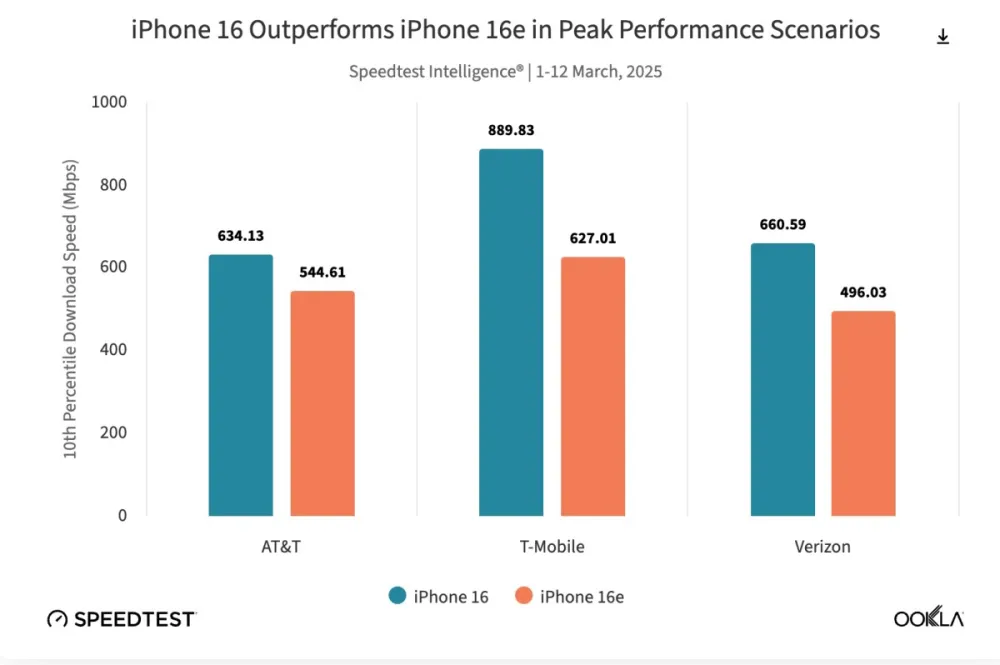
When it comes to upload performance, the iPhone 16e surpasses the iPhone 16 across AT&T, Verizon, and T-Mobile networks, with the most notable lead observed on AT&T and Verizon.
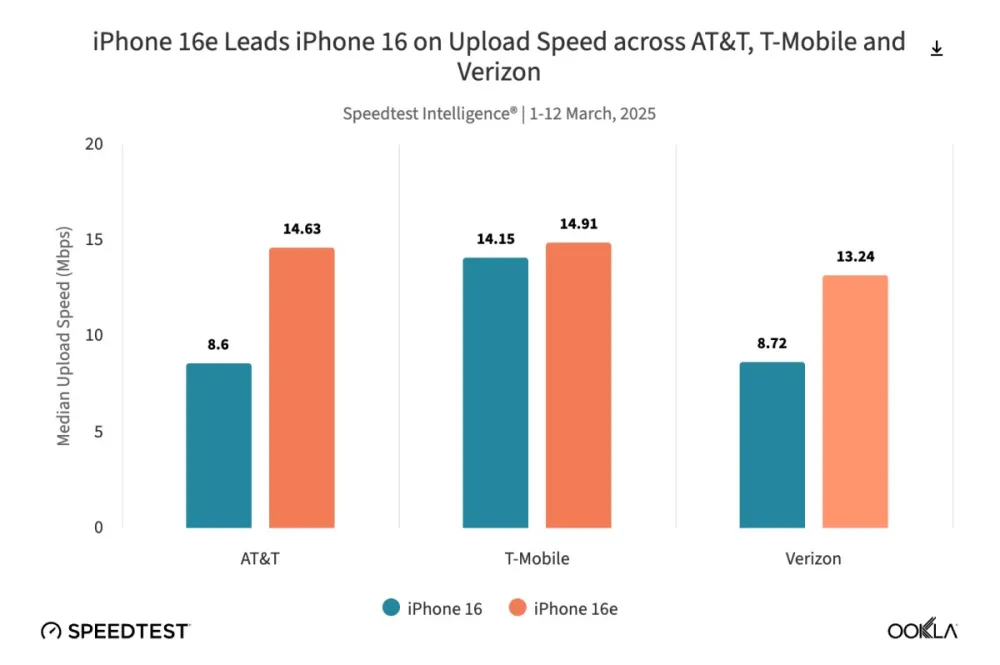
The Apple C1 marks Apple’s first proprietary 5G modem following its acquisition of Intel’s modem business. While it lacks mmWave support and does not yet match Qualcomm’s 5G modem in overall download performance, its upload speeds are already showing significant improvement.
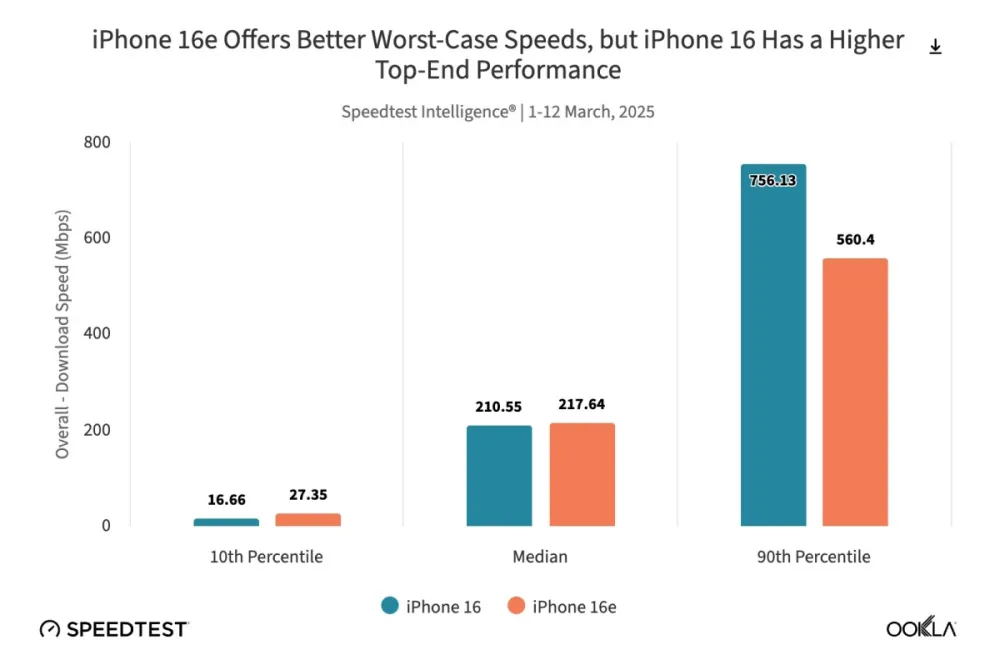
At present, it remains uncertain whether Apple will fully transition to its in-house 5G modems for the iPhone 17 lineup, set to launch this fall. The decision will likely depend on real-world performance feedback from iPhone 16e users in the market.


